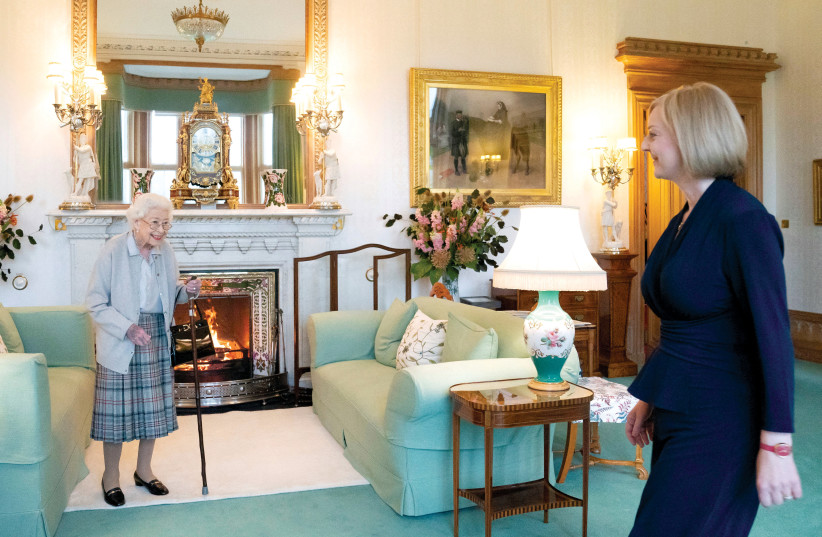I recently lived through what must count as one of those extraordinary weeks which will stay in the mind forever. I was in London, the city of my birth. At the beginning of that week, the country finally knew who would be its next prime minister. The following day, the new prime minister met with the Queen to be asked to form a new government.
Two days later, we learned that the Queen had passed away. And so there was a new King, Charles III. From then on, during the official ten days of mourning, there were continuous, sometimes quite spectacular ceremonies, drawing unprecedented crowds of people to London from all over the country and well beyond, culminating in the Queen’s funeral on September 19.
Whatever one’s view of a constitutional monarchy and of the royal family itself, it can easily be separated from one’s view of Elizabeth II. She was undoubtedly a remarkable person, judged not only by the media representation of her, but by the numerous testimonies of those who met her, and most importantly, by those who worked with her. The characteristics most commonly ascribed to her included steadfast, committed, strong, dutiful, reliable and respectful, alongside humorous, caring, thoughtful and exceptionally well informed.
Judged simply as a woman embracing all those epithets, she was clearly a role model of standards which never slipped from the time she learned that she was the Queen at age 25, to her death at 96. The outpouring of love which followed her death, from people whose lives were so removed from that the Queen had lived, was quite extraordinary, at times very moving in its own right.
For most people in the United Kingdom, Queen Elizabeth II had been a constant presence, more so than any elected leader. She represented continuity in a world changing so fast as to be bewildering. At the start of her reign, there was no such thing as relatively ordinary items like supermarkets and duvets let alone television, mobile phones, the internet and social media. Her first broadcast to the nation as a 14-year-old girl during the Second World War had to be by radio.

She continued to communicate to the people with whatever medium was available to her throughout her reign, particularly with messages of reassurance at times of crisis, most recently during the COVID-19 pandemic lockdowns. Public reaction to her words at that time, “We will be with our families again, we will be with our friends again, we will meet again,” suggested they were more reassuring than those of all the official representatives.
IT MAY be quite difficult for populations outside the UK to understand the display of grief, respect and love expressed by the many thousands of people who queued for up to 24 hours in inclement weather to file past the Queen’s coffin, or to contribute to the huge banks of flowers outside palaces and in parks. It may be impossible to understand the connection felt by so many people to a seemingly remote figure. Some of it was made clear by the many stories related to broadcasters by those people in the queue.
Elizabeth's career
During the 70 years of her reign, Queen Elizabeth II met countless people from all sections of British society, much of it official or ceremonial but also through her particular interests and to express concern, for instance with the victims of a fatal fire or the exhausted health service workers during the COVID pandemic. She also met thousands from the wider world as she did my husband and I on several occasions when he was Israel’s ambassador to the UK. Sitting across from her at a small luncheon in Buckingham Palace given in honor of President Chaim Herzog, I was able to observe her charm as well as her soft power.
And there is another thing, put very succinctly into words by Rod Liddle of the Sunday Times, “we, those of us of a certain age, were mourning not just the death of a great monarch, but the passing of our own time; suddenly exchanged for a world we perhaps do not entirely comprehend and certainly find wanting.” These words must surely resonate with generations of older people.
The death of Queen Elizabeth II marked the end of an era, an era in which respect, discipline and good manners were expected and admired; not, sadly, anymore. The standards, which the Queen embodied, are not fashionable, and that explains at the same time, why some of us admired her and have shed a few tears at her passing.
The writer came on aliyah to Israel in 1993 after 10 years of running the Britain-Israel Public Affairs Committee in London. She was appointed head of the British Desk at the Jerusalem Foundation, a post she held until she retired to concentrate on writing. She is an author, and journalist and is married to Yoav Biran, former director-general of the Foreign Ministry and past Israeli ambassador to the Court of St. James.
